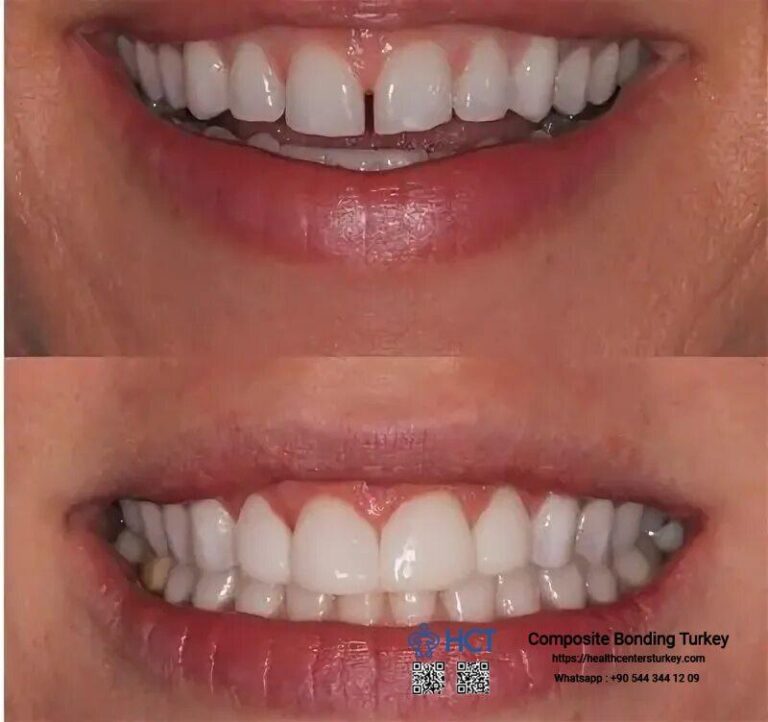Best Practices for Finding Quality Dental Care across Turkey
Best Practices for Finding Quality Dental Care across Turkey
Blog Article
Boost Your Confidence with Quality Dental Care
Dental implants have turn out to be a preferred solution for these looking to replace missing teeth. Understanding how these implants can have an result on adjacent teeth is crucial for anyone contemplating this procedure, in addition to for dentists and specialists concerned in dental care.

One significant side is that dental implants are designed to be anchored into the jawbone, which suggests they are impartial of adjacent teeth. Unlike dental bridges, which frequently require the alteration of neighboring teeth, implants can fill the gap with out compromising the health or structure of those surrounding teeth.
This independence helps preserve the integrity of adjacent teeth. When a tooth is misplaced, there is usually a natural tendency for neighboring teeth to tilt or shift into the empty house. Such motion can lead to misalignment, which might affect bite and general oral health. By placing an implant, you successfully prevent this potential shift, promoting higher alignment in the long term.
Advanced Oral Health Techniques to Suit Your Needs
Additionally, dental implants help maintain bone density within the jaw. A natural tooth root provides stimulation to the encircling bone, maintaining it healthy and robust. When a tooth is missing, the bone can begin to deteriorate because of lack of stimulation. With a dental implant mimicking a natural root, bone loss could be minimized, which indirectly advantages adjacent teeth by preserving the overall structure of the dental arch.
While dental implants are advantageous, improper placement can influence neighboring teeth. If an implant is positioned too close to a different tooth, it could exert undue strain on that tooth, resulting in discomfort or potential injury. Proper planning and imaging strategies are essential for avoiding such issues.
A Complete Guide to Dental Treatment Abroad in Turkey
Moreover, sustaining good oral hygiene is essential after receiving an implant. If not properly cleaned, surrounding teeth might turn into vulnerable to dental points such as decay or gum disease. This underscores the significance of diligent oral care following the procedure to make sure both implants and adjacent teeth stay wholesome.
Regular dental check-ups are also important for monitoring the health of surrounding teeth. Dentists can identify any shifts or potential problems early, permitting for timely interventions. This proactive approach ensures that each the implant and adjacent teeth can coexist without problems.
Life-Changing Dental Care Experiences for Tourists
Another consideration is the influence of implants on chunk force. When a single tooth is missing, the load of chewing might shift to adjacent teeth, doubtlessly leading to put on or strain. Implants restore proper chunk dynamics by redistributing forces in the mouth, which may defend surrounding teeth from undue stress.
Some sufferers may increase issues about the appearance of dental implants. Well-placed implants can mix seamlessly with current teeth, improving general aesthetics. In distinction, failing to replace a missing tooth can lead to aesthetic points, together with collapsing of facial structure and changes in smile dynamics.
It's also price discussing the psychological aspects of dental health. Experiencing tooth loss can adversely affect one’s shallowness and willingness to engage socially. By restoring your smile with implants, you'll have the ability to positively affect not solely your oral health but also your emotional well-being.
Long-term success of dental implants typically hinges on numerous components, together with the affected person's health, maintenance habits, and the quality of the initial procedure. If adjacent teeth are healthy and correctly cared for, the chances are they may proceed to thrive alongside the implants.
Enhance One's Smile using Advanced Dental Solutions
In conclusion, dental implants play a vital function in not just restoring individual smiles, but in preserving the health and structure of adjacent teeth. By preventing shifting, sustaining bone density, and redistributing chunk forces, implants can make sure that surrounding teeth remain in optimal condition. Proper placement, hygiene, and regular dental visits can further enhance the benefits of dental implants, leading to a healthier, more assured smile for years to return.
- Dental implants might help keep the alignment of adjacent teeth by offering a secure anchor, stopping adjacent teeth from shifting into the hole left by a missing tooth.
- The presence of an implant might stimulate bone progress in the jaw, helping to preserve the overall structure and integrity of the adjacent teeth.
- Unlike traditional bridges, implants do not require alteration of surrounding teeth, thus preserving their strength and anatomy.
- Implants can enhance the distribution of bite forces evenly throughout the dental arch, lowering the stress on neighboring teeth throughout chewing.
- A well-integrated dental implant can decrease the danger of bone loss within the area surrounding adjacent teeth, contributing to their long-term health and stability.
- The aesthetics of adjacent teeth can be improved because of the support provided by implants, which can result in higher general cosmetic outcomes.
- With proper placement, dental implants can prevent gum recession around adjacent teeth by sustaining sufficient dental structure.
- Implants might help mitigate the risks of periodontal disease in nearby teeth by selling wholesome gum tissue and offering a cleanable surface.
- Long-term success of dental implants can result in improved oral hygiene routines, which in flip advantages the health of surrounding teeth.
- The improved useful ability of an implant can encourage patients to chew extra successfully, thus growing saliva production and aiding in the protection of adjacent dental tissues.undefinedHow do dental implants have an result on adjacent teeth?
What are dental implants and the way do they interact with adjacent teeth?undefinedDental implants are artificial tooth roots which are surgically positioned into the jawbone. They provide a stable basis for replacement teeth whereas ensuring minimal dental implants in turkey with multilingual staff disruption to adjacent teeth, preserving their integrity and alignment. Find Affordable Dental Care Options for Crowns and More in Turkey.
Invest in Your Smile with Affordable Options in Turkey
Can dental implants cause problems for close by natural teeth?undefinedGenerally, dental implants don't harm adjacent natural teeth. However, if the implant is not positioned accurately or if there’s inadequate oral hygiene, it may result in problems such as adjacent tooth decay or gum disease.

Will getting a dental implant change the way in which my adjacent teeth feel?undefinedMost sufferers report no change within the sensation of adjacent teeth after implant placement. However, it could take a while to regulate to the presence of the implant, much like how one could adapt to different dental restorations.
Can dental implants assist protect the health of adjacent teeth?undefinedYes, dental implants might help keep the health of adjacent teeth by preventing bone loss that can occur after tooth loss. This preservation supports the alignment of close by teeth, lowering the chance of shifting or misalignment.
Navigate the Best Options for Dental Care in Turkey
Do I want to change adjacent teeth when getting an implant?undefinedTypically, adjacent teeth don't need alteration when putting an implant. This is likely one of the advantages of dental implants over conventional bridges, which regularly require reshaping adjacent teeth for help.
How does the healing strategy of an implant have an result on nearby teeth?undefinedThe healing process entails osseointegration, the place the implant fuses with the jawbone. During this time, adjacent teeth stay unaffected and retain their perform, though it’s important to observe post-operative care suggestions. Uncover Your Path to a Beautiful Smile with High-Quality Dental Care.
Enhance Your Smile with Dental Veneers in Turkey
Can dental implants lead description to bone loss round adjacent teeth?undefinedIf dental implants are positioned properly and cared for adequately, they need to not result in bone loss around adjacent teeth. In fact, they may help stimulate bone progress, combating the natural bone loss that often follows tooth extraction.
What precautions ought to I take to protect adjacent teeth after getting an implant?undefinedRoutine dental hygiene, including brushing and flossing, together with regular dental check-ups, is essential. Avoiding exhausting foods and following your dentist’s aftercare directions may also defend both the implant and adjacent teeth.
Is it common for adjacent teeth to shift after an implant is placed?undefinedIt's not typical for adjacent teeth to shift after an implant placement, particularly when the implant is placed accurately and maintained properly. If there’s any motion, it might be as a result of different underlying issues that must be evaluated by a dental professional. Report this page